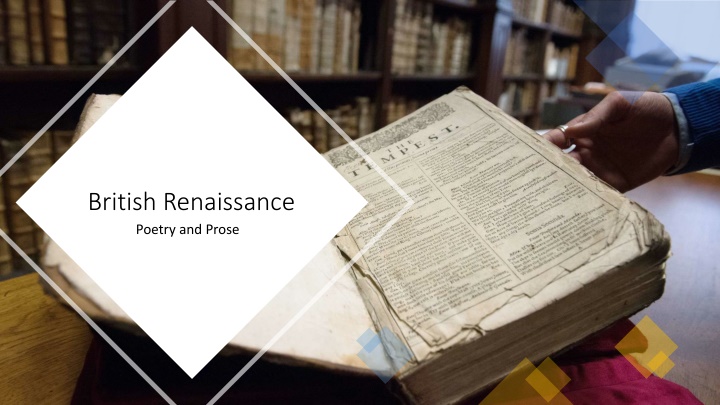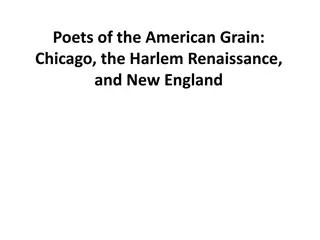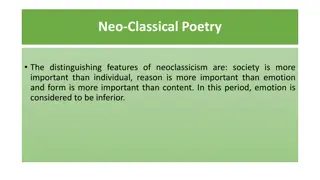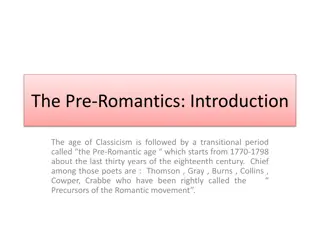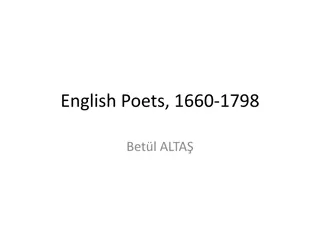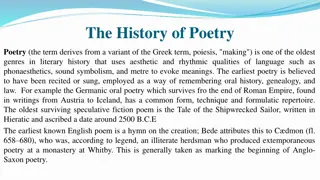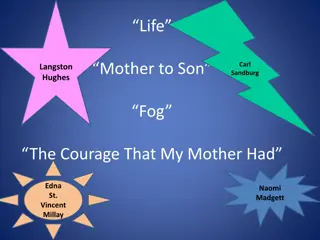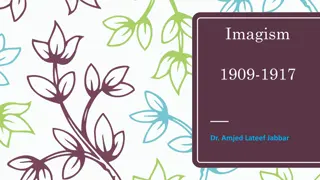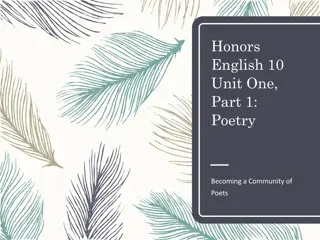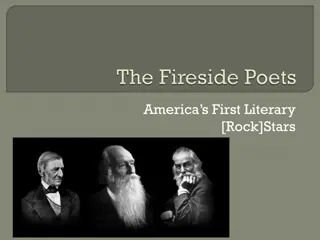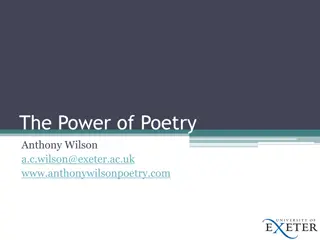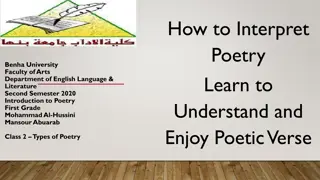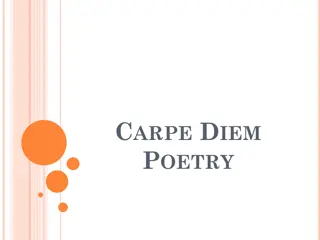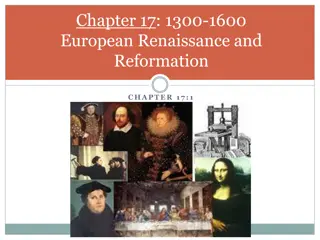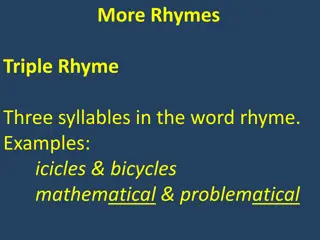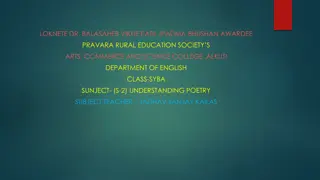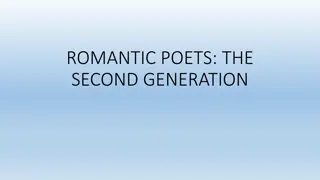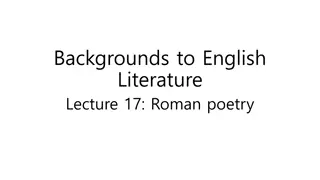British Renaissance Poetry and Prose: Influential Poets and Their Works
Explore the world of British Renaissance poetry and prose through the works of renowned poets like Sir Thomas Wyatt, Edmund Spenser, and Sir Philip Sidney. Dive into the evolution of the sonnet form, from Wyatt's introduction of the Italian/Petrarchan sonnet to Spenser's masterpieces like "The Faerie Queene" and Sidney's "Astrophel and Stella." Discover the richness of this literary period and the lasting impact of these poets on English literature.
Download Presentation

Please find below an Image/Link to download the presentation.
The content on the website is provided AS IS for your information and personal use only. It may not be sold, licensed, or shared on other websites without obtaining consent from the author.If you encounter any issues during the download, it is possible that the publisher has removed the file from their server.
You are allowed to download the files provided on this website for personal or commercial use, subject to the condition that they are used lawfully. All files are the property of their respective owners.
The content on the website is provided AS IS for your information and personal use only. It may not be sold, licensed, or shared on other websites without obtaining consent from the author.
E N D
Presentation Transcript
British Renaissance Poetry and Prose
Sir Thomas Wyatt (1503 1542) politician, ambassador, lyric poet introduced the Italian/Petrarchan sonnet to England modified the form, often finishing with cddc ee, introducing the closing couplet to sonnets early on strongly influenced by Chaucer s language more intimate, personal and less ceremonial than Petrarch and other Italian models also wrote in other genres: songs, satires, epigrams
Sir Thomas Wyatt (1503 1542) Samples of poetry listened to and briefly discussed in the lesson: Innocentia Veritas Viat Fides Circumdederunt me inimici mei (1536) My Lute Awake (first published 1557)
Edmund Spenser (1552 1599) one of the prime masters of poetry in English best known for his masterpiece, The Fairie Queene an epic poem allegorical work, possible to read on several levels also wrote in other genres: The Shepheardes Calender a pastoral work of twelve eclogues for each month of the year Amoretti and Epithalamion sonnets written to/about his second wife
Edmund Spenser (1552 1599) Sample of poetry listened to and briefly discussed in the lesson: Sonnet LXXV, Amoretti vs. Shakespeare s Sonnet XVIII
Sir Philip Sidney (1554 1586) poet, scholar, politician and soldier travelled widely throughout Europe: Germany, Italy, Poland, Hungary, Austria, Bohemia was an active MP in Parliament Works: Astrophel and Stella The Countess of Pembroke s Arcadia An Apology for Poetry/A Defence of Poesie
Sir Philip Sidney (1554 1586) Samples of poetry listened to and briefly discussed in the lesson: Sonnet XXX, Astrophel and Stella Sonnet XXXI, Atrophel and Stella
John Donne (1572 1631) poet, scholar, soldier, later a minister of the Church of England travelled abroad and fought in battles in Spain womanizer turned married man turned minister a masterful and versatile poet: satire, elegies, erotic poetry, epigrams, religious poems a catholic who converted to the Anglican faith, and got ordained as a minister in 1615 also important as a translator Works (selection): Songs and Sonnets (including the Holy Sonnets) Devotions upon Emergent Occasions Biathanatos
John Donne (1572 1631) Sample of poetry listened to and briefly discussed in the lesson: Holy Sonnet X ( Death, Be Not Proud )
Further Important Figures Sir Francis Bacon (1561 - 1626) philosopher, statesman, scientist, writer (some) works: Novum Organum, sive Indicia Vera de Interpretatione Naturae an improvement upon classical logic (Aristotle s Organon) Of the Proficience and Advancement of Learning, Divine and Human in support of empirical philosophy directly (structurally) inspired d Alembert and Diderot s Encyclopedia New Atlantis an unfinished utopian novel Francis Godwin (1562 1633) bishop, historian (some) works: important works on history and religious history The Man in the Moone (1638) the first work of science-fiction in English (and one of the firsts ever) incorporates the theories of Copernicus, Kepler and Galilei
